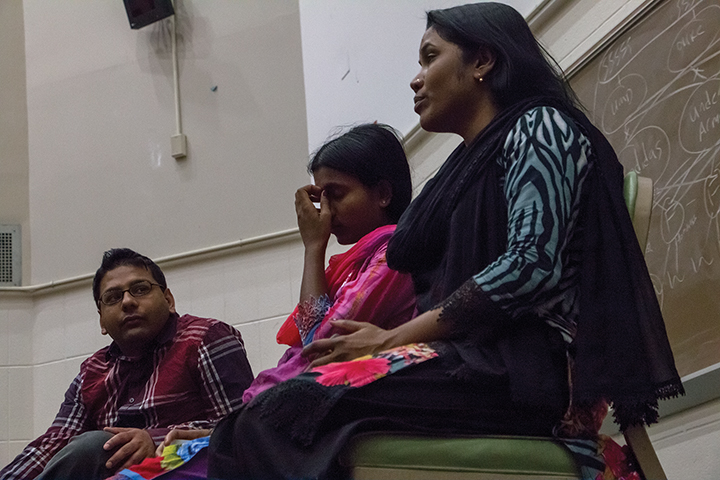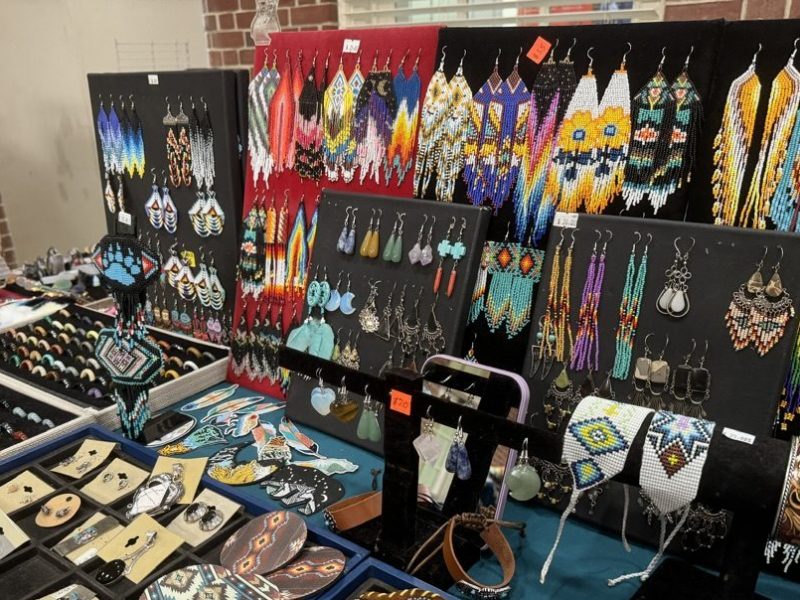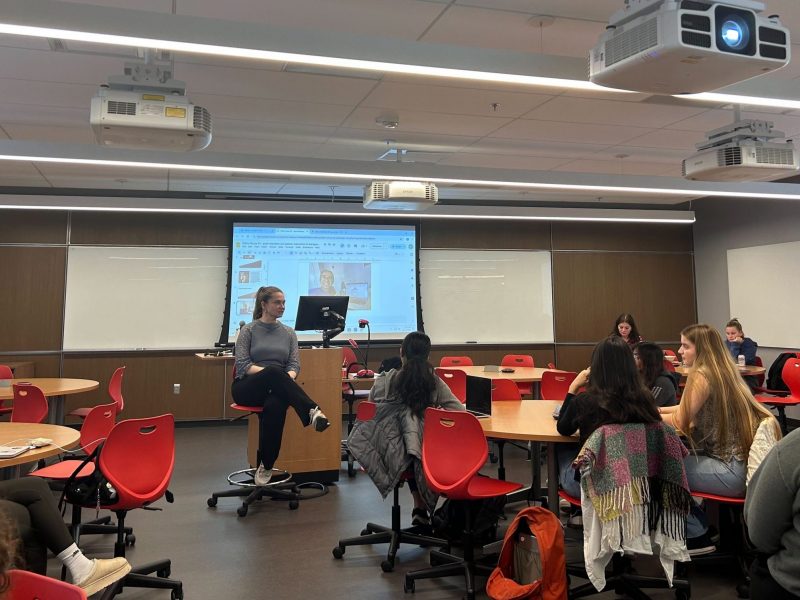
Aleya Akter (right), a Bangladeshi labor organizer, says factory managers threatened and physically abused workers by slapping them, pulling their hair and kicking them off their stools.
Aklima Khanam had worked in garment factories since she was 14 years old, typically working 120 hours each week. Nearly one year ago, she was working inside the Rana Plaza factory in Bangladesh when it collapsed, killing more than 1,100 workers.
Khanam and Aleya Akter, also a Bangladeshi garment worker, spoke to a small crowd Monday night in the Art-Sociology building about the factory conditions in Bangladesh and how university students can work to improve them.
This university’s Community Roots chapter hosted United Students Against Sweatshops on its 18-stop End Deathtraps Bangladesh Worker Tour, said Sarah Ferrell, co-president of Community Roots. Garrett Strain, USAS international campaigns coordinator, introduced the speakers and spoke about the role students can have in creating change in Bangladesh’s factories.
“We’re trying to improve safety standards so factories in Bangladesh don’t function as deathtraps,” Strain said.
On April 24, 2013, workers did not want to enter Rana Plaza because they heard it was falling apart; however, the management became physically abusive and forced the workers inside the factory, Khanam said. After working for half an hour, the electricity went out and the building started to collapse. Khanam saw several workers crushed, but she and others were found and taken to the hospital 12 hours after the collapse.
“The building collapsed onto the machines near me and one of the machines fell on me,” she said. “Right near me there was another male co-worker who died from a beam falling on him. There were three or four other co-workers near me who were also crushed.”
Akter, the general secretary of the Bangladesh Garment and Industrial Workers Federation, also spoke of the abusive conditions she faced as a garment worker. Supervisors often gave workers quotas they couldn’t finish in a normal workday, forcing them to work unpaid overtime. There was also no place to eat and the bathroom didn’t have access to clean running water, Akter said.
“When I worked in the factory, there were a lot of abusive conditions towards workers. They were physically abusive; they would slap us, they would pull us by the hair, they would kick us off our stools,” she said. “The management would use hired thugs outside of work to intimidate me, and they would threaten me on the phone. They would threaten me with things like abduction, killing me, tearing my clothes off.”
Akter urged audience members to do what they can to pass the Accord on Fire and Building Safety in Bangladesh, an agreement requiring brands to ensure they are working with factories that provide safe working conditions in Bangladesh. More than 150 brands have already signed on, according to bangladeshaccord.org.
The accord brings unions into the inspection process for the first time and ensures buildings are inspected for fire safety and workers are made aware of the conditions after inspections. With the accord, workers cannot be forced into factories, Akter said.
Strain said students can pressure this university to stop working with brands that have not signed the accord. Sixteen universities in the U.S. have agreed not to sell brands on their campuses that have not signed the accord, but this university is not one of them, he said.
“[Students at this university] pay tuition, and that affords us a certain amount of decision-making in the way that the university is run,” Strain said. “If workers are organizing on the ground, forming unions and putting pressure on the brands, and if students are putting pressure on the brands by getting their universities to cut contracts with brands that violate workers rights, we are able to create this student-worker solidarity sandwich of justice.”
Brands often have agreements with many different factories — for example, 1,232 factories produce Adidas goods, Strain said. This creates competition and keeps prices down, so factories do not have extra money to spend on making working conditions safe. If factories use their money to improve working conditions, the price of their goods goes up, and brands stop working with them, which is why safety isn’t often the primary focus of factories, Strain said.
One of accord’s provisions is that companies cannot cut their ties with factories if problems are found, Akter said.
“We make clothing in Bangladeshi factories, but we’re producing it for university students. If you don’t stand with us then we won’t be able to move forward,” she said. “It’s realistic and possible that if you put pressure on your university, that your university will require its licensees to comply with the accord. It’s you who can ensure that workers in Bangladesh are able to work in conditions that treat them with dignity.”
Freshman biochemistry major Chris Bangert-Drowns said the workers’ personal stories gave him a new outlook on the activity in Bangladeshi factories.
“It was moving to actually hear from people who are involved in the unionization campaigns and who were involved in the collapse itself,” he said. “To understand the systemic issues is one thing, but to hear from the people who are involved in it firsthand is completely another thing.”
Junior journalism major Sierra Kelley-Chung said the “behind-the-scenes” take on the issues was enlightening.
“It was definitely an eye-opening experience, especially because some of these brands I wear every day — students wear every day,” she said.



